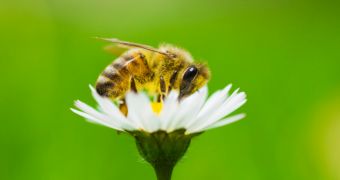Most people are well too familiar with the fact that some of the plants now growing in various parts of the world produce caffeine as part of their daily routine, and rely on it as a natural pesticide.
However, a new study claims that the caffeine these plants produce also helps them find pollinators and trick them into visiting them as often as possible.
More precisely, caffeine attracts bees and thus ups the plant's chances of producing others of its kind.
According to Scientific American, several experiments carried out on bees have shown that, whenever one such insect got to indulge in the caffeine provided together with a given flower's nectar, the bee was more likely to stop by for another visit at one point in the not so distant future.
To cut a long story short, its becoming exposed to caffeine improved on the bee's ability to remember where the flower that gave it the buzz was located, and made it easier for the insect to return for a new kick.

 14 DAY TRIAL //
14 DAY TRIAL //